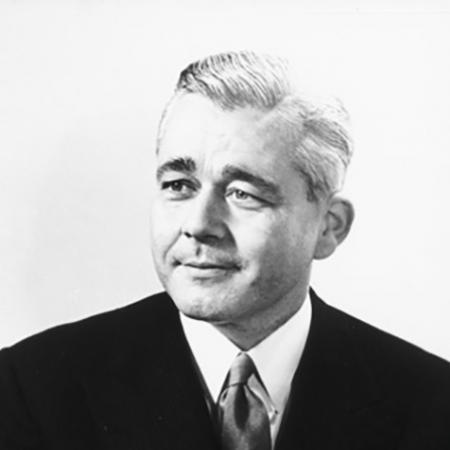2021 Undergraduate Essay Prize - winners announced
The winners of the sixth Merton College Undergraduate Essay Prize have been announced: History and Modern Languages student Holly Plater was chosen as winner of the first-year prize, with Evelyn McGrory (Modern Languages) and Anna Stephen (English) receiving commendations; and Louis Cameron (English) and Luke Bateman (History) were named as joint winners of the second-year and above prize.
Holly's essay was entitled 'How important a role does the influence of French historiography play in Vicens Vives’ methodology?' and looked at how the Annales school, a group of historians associated with a style of historiography that stressed long-term social history, was one of the major influences that catalysed the thinking of Jaime Vicens Vives, a prominent Catalan historian of the 20th century:
"I thoroughly enjoyed writing this essay, as it enabled me to contextualise Vicens Vives, introduced me to a range of historians, and allowed me to undertake comparative, explorative work. The text which this essay focusses on, the Aproximación a la historia de España, represents Vicens’ endeavour to recapitulate Spain’s main historiographical problems. Vicens Vives was arguably the most influential Catalan historian working within Francoist Spain. In this insular climate, Vicens’ interaction with foreign historians was fundamental in innovating methodological practices and reinvigorating the study of history in Spain.
"Vicens Vives was a dynamic, international historian, who proactively engaged with new developments in historiography and was open to experimentation. Therefore, to reduce him to being a historian of a single group would be inadequate. He was selective in adopting a variety of working practices which suited his unique academic mission. Finding parallels between the works and working practices of Vicens and his contemporaries was fascinating. The essay afforded me a deeper understanding of how these historians mutually benefitted one another, and how historical writing is a composite product of many influences."
Holly added:
"I am extremely grateful to the Junior Research Fellows for taking the time to read and consider our essays. Achieving this level of recognition for one of my pieces of work has been really encouraging."
Louis Cameron was one of the joint winners of the second-year and above prize; his essay took a quotation from George Eliot's Daniel Deronda as the starting point for a consideration of how 19th century fiction attempted to describe human beings:
"The broad scope of my title allowed me to explore several ideas within a single essay, looking at the way the representation of bodies is shaped by the use of certain literary modes, and the way these modes are themselves profoundly ideological, rooted in the writer’s assumptions about human nature and, by extension, their political allegiances. My essay focussed on Aphra Behn’s prose narrative Oroonoko and Margaret Cavendish’s romance The Blazing World. In both, the human body is a site for the conflict between the aristocratic values implicit in the romance genre and the values of a nascent mercantile or scientific materialism which threaten them with obsolescence; at stake in the representation of the body is not only the validity of Behn and Cavendish’s favoured social order but also their authority as writers.
"I am extremely grateful to the Junior Research Fellows for taking the time to read all our essays. I thoroughly enjoyed reading and writing about these two unusual and fascinating texts, and it is very encouraging to have my work recognised."
The other second-year and above prizewinner, Luke Bateman, considered how the 'imagined geographies' of cosmology were institutionalised and used in the governance of both Aztec society and Song dynasty-era China:
"I wrote this essay whilst sitting the inspiring ‘Global Middle Ages’ paper. The idea of ‘cosmologies’ instantly intrigued me, allowing examination of thought systems and divinity without the monotheistic baggage of ‘religion.’ It also offered a different slant on global history: how did the people I was studying conceptualise the globe, and why? I was fascinated by how humanity’s relationships with higher planes of existence seeped into everything from education to political hierarchies, rendering the local shrines of Song China spaces of political competition and influencing Aztec gender theory.
"This essay also gifted me new geographic perspectives. So often History is confined to Europe or the Mediterranean, but this essay provided a blessed first glimpse of Aztec Mexico and Song China. Both academically and personally, it is challenging and fulfilling to learn from peoples and societies usually overlooked in the western tradition. I hope to return to these topics one day.
"I’d like to express immense gratitude to my tutor Amanda and tutorial partner Savannah for eight wonderful weeks of learning and conversation, and to the Junior Research Fellows for their careful and kind consideration. I had enormous fun writing this essay, and am delighted others could share in my fascination."
The Undergraduate Essay Prize competition was open to all current Humanities and Social Science undergraduates, with a single prize of £150 for the winning essay. The essay had to be one which had already been submitted for a tutorial, and could be no more than 3,000 words in length.
The entries were judged by Merton’s Junior Research Fellows in Humanities and Social Sciences, who considered:
- clarity of thought and expression;
- logical and effective organisation of ideas to build a coherent argument;
- effective integration of supporting evidence, where appropriate;
- effective use of elements of style to enhance meaning;
- independence of judgement; and
- accurate referencing, appropriate to subject-specific conventions.
